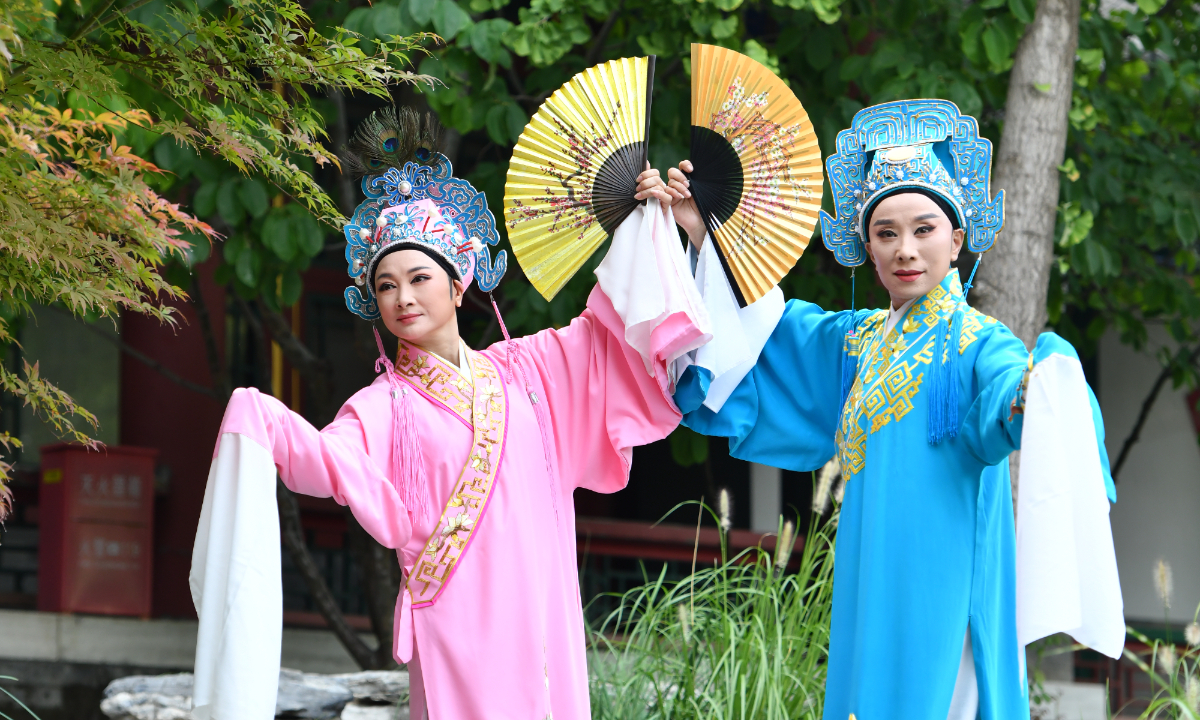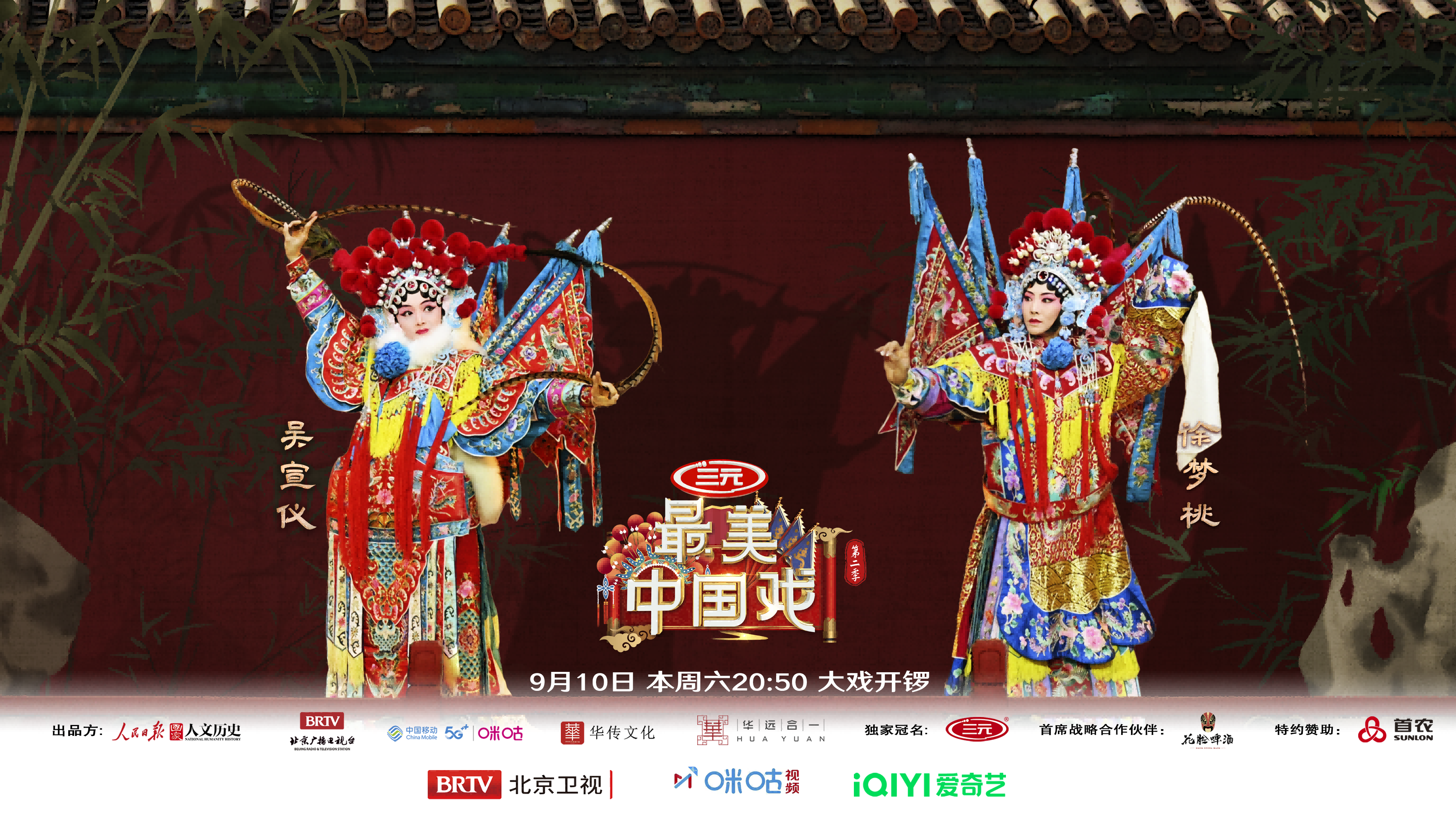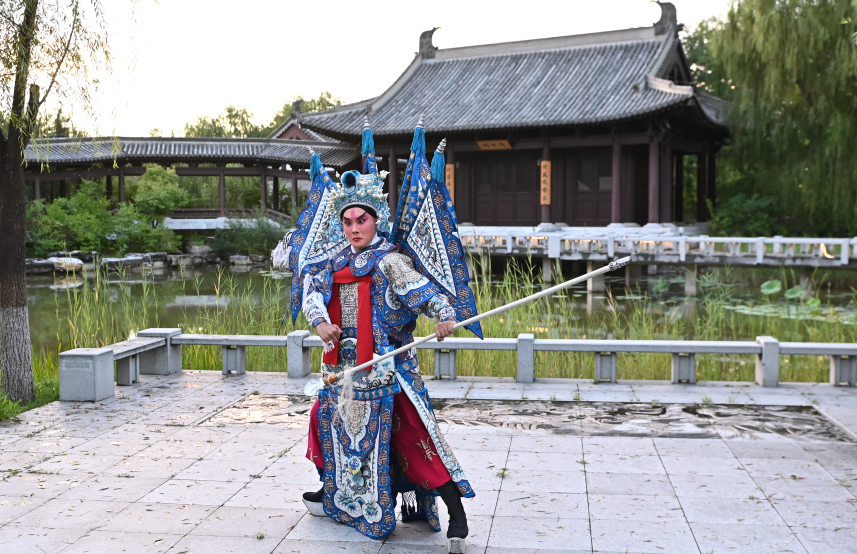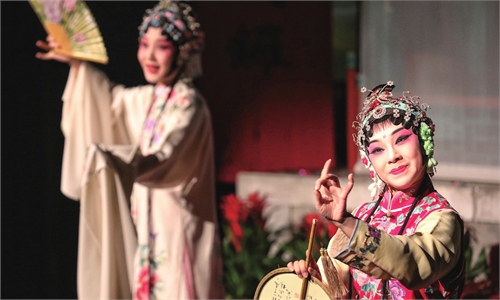
Actresses perform a scene from the Yueju Opera The Butterfly Lovers on the reality show Zuimei Zhongguoxi. Photo: Courtesy of the show's production team
Yan Weihan, a sophomore in Beijing, feels happy that she and her grandparents finally have something more to discuss than just pleasantries at the dinner table.
She didn't expect to fall in love with traditional Chinese operas, and her grandparents, both opera fans, never expected they would find themselves planted in front of the TV to keep up with the reality TV shows just like young people.
Recently, several TV stations in China launched a series of elaborate prime time variety shows that spotlight traditional Chinese opera. From the Voice of China Yueju Opera special season, which has a cumulative viewership of over 60 million after only three episodes, to the second season of Zuimei Zhongguoxi (Most Splendid Chinese Operas), which entered the 100 top search queries on online social platforms as of November 10, a diverse range of opera variety shows have emerged that innovatively present the traditional art form, bringing TV viewers, especially young people, into the profound world of Chinese operas.
Coming together
As one of the most important art forms in China, traditional Chinese opera has an extremely long history as well as a mass following due to its unique charm. Yet this slow-paced performance looked to be losing touch with modern audiences in today's fast-paced world.
However, now several opera variety shows, aimed at both Chinese and foreign audiences, have been inviting performers from a number of fields to collaborate on creating innovative performances while exploring the cross-generational significance of opera.
For instance, the premiere episode of the second season of Zuimei Zhongguoxi, the crew invited Xu Mengtao, who won the first-ever Olympic gold medal in women's freestyle skiing aerials for China at the Beijing 2022 Winter Olympics, to perform a scene from Mu Guiying Takes Command, which presents the story of a legendary heroine from ancient China's Northern Song Dynasty (960-1127) who led female soldiers to defend their country.
"It was fascinating for me to experience playing the role of a heroic woman and to promote traditional Chinese culture to more people," Xu told the Global Times.

The poster of the second season of the Zuimei Zhongguoxi. Photo: Courtesy of the production team
For the performance, Xu learned how to spar with a lance from a professional Peking Opera performer, during which she felt the similarities between athletes and Peking Opera performers.
"Although the performance choreography wasn't complicated, it still required practice to perfectly interpret the character's emotions," she said.
"It's the same in competitive sports. You can only be confident after you have honed your skills to perfection," she said, emphasizing that she also hoped to pass on to the audience her diligent attitude.
Yan, who once resented her grandparents for occasionally singing Peking Opera pieces at home, has now entered the world of opera because of Xu and has gradually immersed herself in it through a series of fascinating reality opera shows.
"These variety shows are the perfect introduction to fun," said Yan, who used to think traditional Chinese operas were dull.
Power of youth
Currently, Chinese opera variety shows are not only attracting younger viewers, but are also witnessing an increase in the number of young creatives getting involved.
For Wei Pengyu, a Gen Z actor with the National Peking Opera Company, taking part in a series of variety shows such as Zuimei Zhongguoxi and Hubei TV's Chinese Opera Pier was a particular experience.
"Unlike traditional Peking Opera performances that are fixed on one side of the stage, on these variety shows performances take place among the classical architecture and gardens at places such as the Summer Palace and the Beijing Garden Expo Park. We need to present and interpret more content for audiences, which also makes us professional actors set higher expectations for ourselves," Wei said.
"These forms of encouragement also inspire more young professional opera performers to have the courage to innovate more," Wei said.

Wei Pengyu performs a scene from the Peking Opera Romance of the Three Kingdoms on the reality show. Photo: Courtesy of the show's production team
On the stage of the Voice of China Yueju Opera special season, the audience was delighted to see dan (female role) singer Zhao Xinyu perform to music played by guitar instead of traditional gongs, drums and the erhu. Meanwhile, laosheng (elderly male role) actor Zhang Aijia combined the blues and rap to create a unique new style of Yueju Opera music.
Influenced by this thriving trend, more young enthusiasts are promoting Chinese opera in their own way.
Currently, many opera clubs have been established in Chinese universities, for students studying classic opera works together, where Yan wants to be in the future.
On several livestreaming platforms like Douyin and Kuaishou, many opera enthusiasts are popularizing the knowledge of Chinese traditional operas to netizens.

